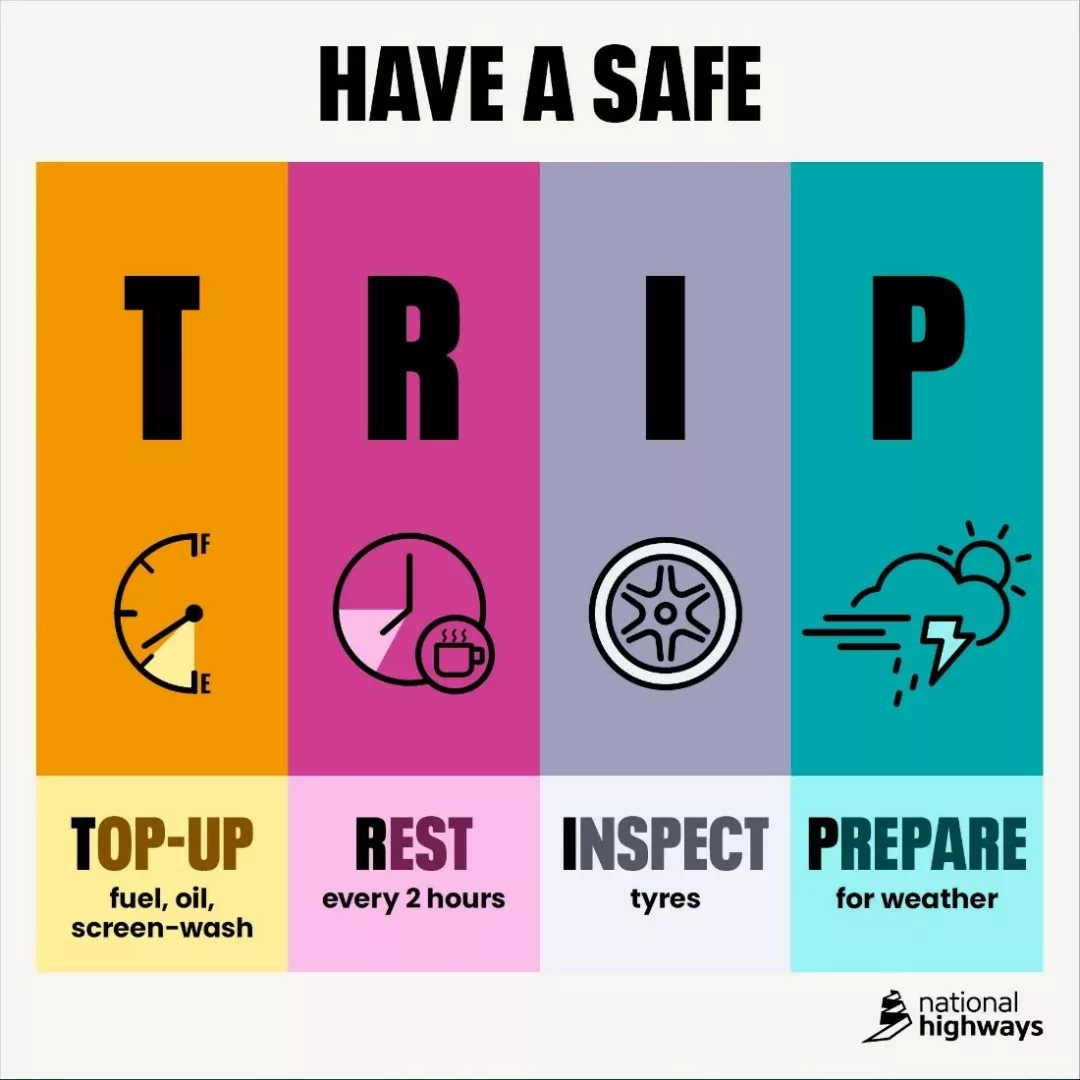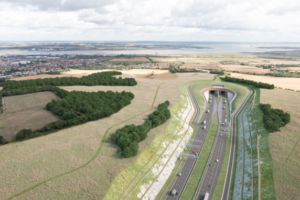New figures released by National Highways show there are 59% more fatigue-related deaths and serious injuries on our motorways and major A roads in the summer than in other seasons.
To combat this dangerous driving, National Highways has joined forces with Professor Steven Lockley, an expert in sleep and circadian rhythm research from the University of Surrey, to provide some vital advice to drivers making long road trips this summer.
In addition, the new summer safety campaign, T.R.I.P (Top-up, Rest, Inspect, Prepare) has been launched to call on motorists to make sure they’re well rested ahead of long journeys.
The statistics also show that 13% of overnight deaths and serious injuries involved fatigue, more than double the proportion at other times of the day. In summer, fatigue is a factor in 10% of all deaths and serious injuries on our roads, up from 7.5% the rest of the year.
Drivers are urged to plan rest stops for at least 15 minutes every two hours to help reduce the effects of fatigue.
A separate survey of almost 2,000 drivers, conducted by National Highways and Ipsos UK, showed that nearly 30% of drivers admit they tend to drive for longer than the recommended maximum of two hours before stopping for a break. Almost one in three said they stop after three hours or more on summer journeys.
Professor Lockley, from the Surrey Sleep Research Centre at the University of Surrey, said:
“The statistics released by National Highways show that fatigue really can kill. These accidents are preventable with proper preparation, however. We want people to be safe on the roads this summer so we have compiled a list of simple things that motorists can do before getting behind the wheel and during the trip. These include planning your drive for daylight hours if possible, getting enough sleep ahead of time and taking regular breaks.”
“National Highways T.R.I.P. campaign is a great reminder for people to make sure that they are as prepared for a journey as their vehicle is.”
























